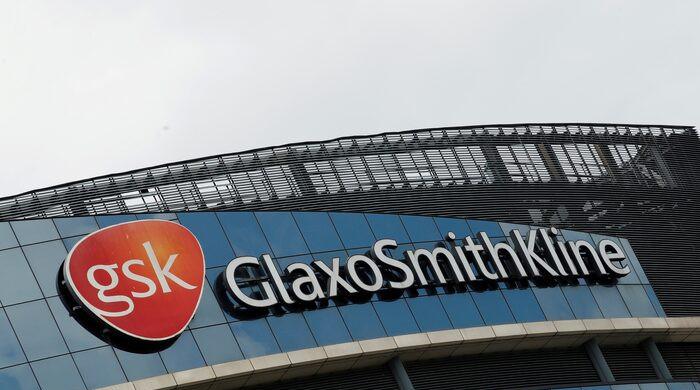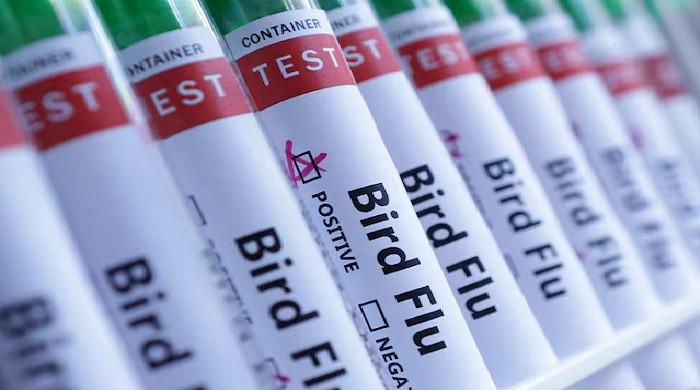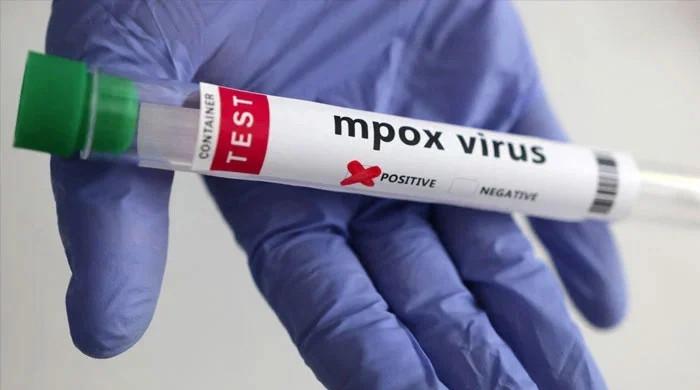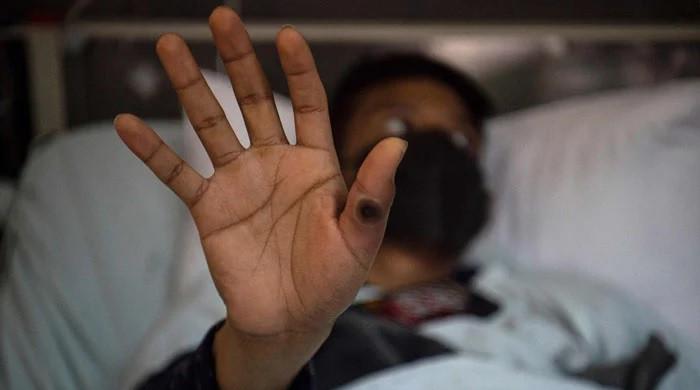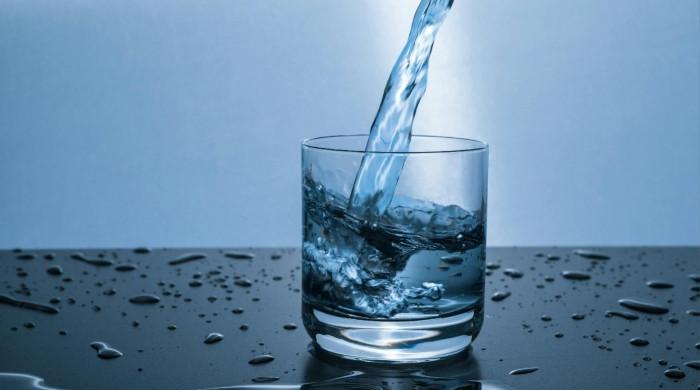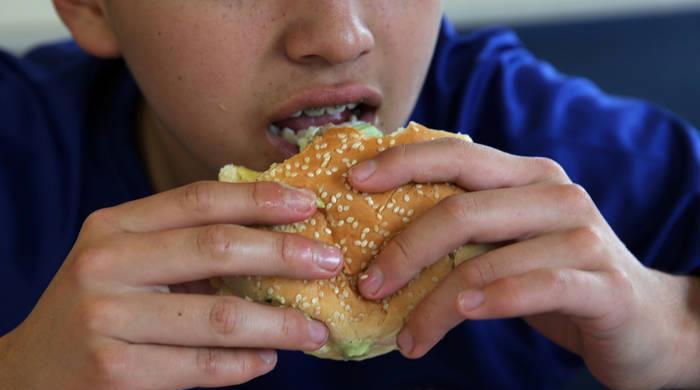Major health crisis brewing as heatwave scorches Pakistan
Sindh, Punjab and Balochistan severely affected; Dadu residents say prolonged drought, unavailability of clean water compelled people to drink contaminated water
May 15, 2022
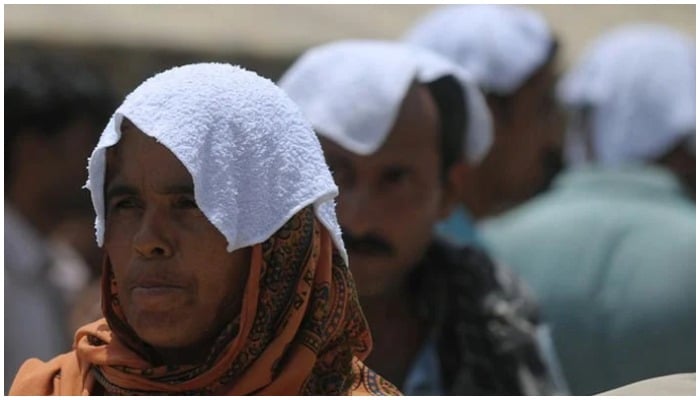
- Residents say prolonged drought and unavailability of clean water is compelling people to drink contaminated water to kill the heat.
- Mercury shoots as high as 51 degrees Celsius in Jacobabad.
- Unconfirmed reports suggest at least three people died of acute water diarrhoea in Kaccha.
KARACHI: Numerous cases of acute kidney injury (AKI) caused by heatstroke, acute water diarrhoea and gastroenteritis have been reported from all over the country, especially Sindh and Punjab as extremely hot weather scorches these areas, The News reported Sunday.
Officials said mercury shot as high as 51 degrees Celsius in Jacobabad, Sindh on Saturday, while the heat battered other areas in the province.
Unconfirmed reports suggest at least three people died of acute water diarrhoea in a remote area of Sindh, Kaccha, in Dadu as the temperature rose to 49°C. Residents said prolonged drought and unavailability of clean drinking water left no choice for the people except for consuming the comtaminated water from ponds to kill the heat.
Director Gambat Institute of Medical Sciences (GIMS) Dr Rahim Bux Bhatti said patients of AKI, acute gastroenteritis and other symptoms of heatstroke due to prolonged exposure to sun are being brought to their heatstroke camp.
"The entire area is in the grip of an intense heatwave for the last few days,” he said while speaking to The News.
Director General Health, Sindh, Dr. Jumman Bahoto, said there were some ‘confirmed’ reports of deaths and sickness due to heat stroke and water borne diseases in some cities and towns of the province, which were experiencing an intense heatwave these days, adding that he had directed all the District Health Officers (DHOs) to collect data as well as establish heat stroke camps in their jurisdiction.
“A rise in the cases of acute watery diarrhea and other water borne illnesses are being reported from Dadu’s remote areas while some cases of heatstroke have also been reported as temperature shot upto 51° in some areas of the province. We have issued directives to the health authorities to establish heatstroke camps, provide clean drinking water and ORS to patients and provide timely medical treatment to them,” DG Health Sindh added.
As daytime temperatures became unbearable in many cities of Punjab, health authorities said many traffic wardens and common people who remained exposed to sunlight in Lahore had acute kidney injury due to dehydration. They were taken to different city health facilities, including Jinnah Hospital Lahore for treatment.
“Dozens of people, especially traffic wardens in Lahore, fainted due to dehydration over long exposure to sunlight in the intense heat and they were shifted to different hospitals. We have decided to distribute umbrellas and awareness pamphlets among people in Lahore to prevent them from permanent disability and death due to heatstroke,” eminent physician and Vice Chancellor of University of Health Sciences (UHS) Lahore Prof. Javed Akram said.
The National Institute of Health (NIH), Islamabad, also warned of an increase in the cases of heatstroke and water-borne diseases due to extremely high temperatures in different parts of the country, saying heatstroke is a medical emergency and proves fatal if not managed properly.
“A dehydrated person may not be able to sweat fast enough to dissipate heat, which also causes the body temperature to rise. Common signs and symptoms of heatstroke are hot and dry skin or profuse sweating with hot red or flushed dry skin, weakness/lethargy, throbbing headache, elevated body temperature, irritability, dizziness, and decrease urine output, heat rash (red cluster of pimples or small blisters)," an advisory issued by the NIH in the wake of intense heat wave said.
The advisory further warned that heatstroke can cause death or organ damage or disability if not properly managed in time, adding that infants, elderly persons who are above 65 years of age, diabetics, hypertensive, athletes and outdoor workers are at high risk for heatstroke.
On the other hand, Pakistan Meteorological Department (PMD) said temperatures remained 50°C or above in three cities of Sindh including Jacobabad where 51°C was recorded on Saturday while in Nawabshah (Shaheed Benazirabad) 50.5°C was recorded and in Moenjo Daro 50°C was recorded on Saturday.
“Most parts of the country are likely to remain in the grip of heatwave like conditions during the next week. There is, however, slight relief expected in most parts of the country during from the evening or night of May 14 to 17, 2022, that is, mainly due to duststorms/gusty winds, rain-thunderstorm at scattered places in most parts of the country in the afternoon and evening/night. Day temperatures are again likely to rise from 18th May, 2022," an advisory issued by the PMD said.




